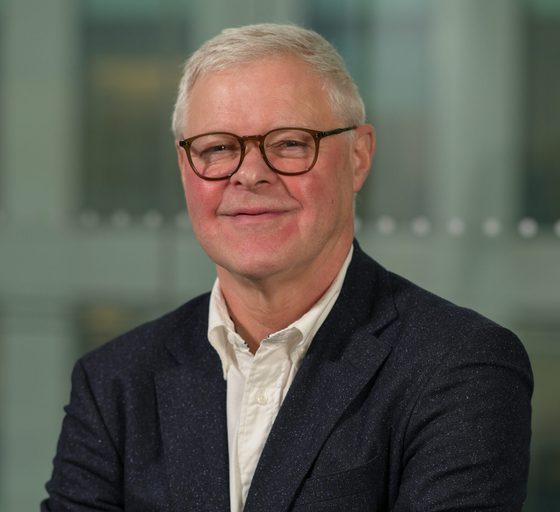What Islamic finance can teach global markets

This editorial was originally published by Finance Middle East.
As global markets navigate inflation and a shift in how consumers are seeking to manage their finances, the need for a financial model which prioritises more choice and transparency is clear. Islamic finance, once seen as a specialised field, is increasingly being recognised as a financial system aligned to these priorities.
Often mistakenly perceived as niche or exclusive to those of the Muslim faith, Islamic finance represents a global industry worth over US$3.25 trillion, projected to reach US$4 trillion by 2030. At Gatehouse Bank, we’re seeing this momentum reflected through the increasing demand from both UK based and international customers, particularly among those seeking financial products that align with their values.
According to S&P Global Ratings, the global Islamic finance sector grew by 10.6% in 2024, even amid a context of macroeconomic uncertainty. Islamic finance offers a structurally distinct framework, built on ethics, real-economy value and shared risk, that could help global markets chart a more stable course forward.
A System Built for Resilience, Not Reaction
Unlike conventional finance, which often relies on abstract instruments and market speculation, Islamic finance is grounded in the real economy. At Gatehouse Bank, we operate using the Diminishing Musharakah (partnership) model for our Home Purchase Plans, where both the customer and the bank jointly acquire the property and the customer gradually buys out the bank’s share. This structure ensures a balanced relationship between the customer and finance provider, with risk and responsibility shared throughout the contract.
Musharakah is just one example of Islamic finance’s asset-based approach. Other models include Mudarabah (profit-sharing), where one party provides capital and the other entrepreneurial effort, and Murabaha, a widely used structure in which the bank purchases an asset and sells it to the customer at a pre-agreed profit. In all cases, transactions are not speculative and are backed by real assets, with returns tied to genuine economic activity.
Ethical by Design
Islamic finance is guided by a set of principles which are naturally aligned to several international frameworks for sustainable development. These principles prohibit investment in sectors considered harmful to society, such as alcohol, tobacco, adult entertainment, gambling and the arms industry. With over one in three (37%) UK homebuyers saying that they would be most interested in opting for a Shariah-compliant provider because funds aren't invested in unethical industries, it is clear that this is a factor which is resonating with consumers.
This makes Islamic finance especially relevant at a time when ESG is often lacking consistency on an industry level. The recent US$500 million green sukuk from Abu Dhabi based, Aldar Investments Properties exemplifies this convergence, bringing together environmental objectives with Shariah-compliant financing. Sukuk, often referred to as Islamic bonds, are investment certificates that represent ownership in an underlying asset, ensuring that returns are generated through real economic activity rather than interest payments.
According to Fitch Ratings, sukuks exceeded US$10.5 billion in 2023 globally and that figure is projected to surpass US$50 billion by 2025. This evolution is allowing Islamic principles to be applied in new, forward-looking contexts.
The Market Is Listening
Insights from Gatehouse Bank’s 2024 Islamic and Ethical Finance Consumer Report show a notable shift in perception of Islamic finance. Nearly 30% of UK consumers not of the Muslim faith would consider Islamic finance if the services were comparable to conventional banks. Among those aged 18 to 24, awareness is significantly higher, with 83% familiar with the concept and increasingly drawn to financial products that reflect personal values like fairness, clarity and responsibility.
This is not a trend specific only to the UK. In Malaysia, Islamic financing now makes up 43% of the domestic system financing. In Nigeria, regulatory reforms are accelerating growth in Islamic microfinance. Across the GCC, which accounts for 53% of global Islamic finance assets, demand for Shariah-compliant products is fuelling innovation, from sukuk ETFs to digital-first Islamic banks.
While challenges remain, including regulatory disadvantages, limited secondary markets and the need for broader product development and innovation, the principles of Islamic finance are increasingly aligned with what many global investors and consumers are seeking.
A Blueprint Worth Learning From
From London to Riyadh, Kuala Lumpur to Lagos, Islamic finance has moved from being a niche offering to a burgeoning market full of potential. The industry is now being considered as a key player in discussions on sustainable development, inclusive capital markets and financial reform.
As a Bank who is led by stakeholders across the UK and the Gulf, we know the global opportunity offered by Islamic finance is great. As a market that puts values at the heart of its decision making and leads with principles focused on fairness, clarity and purpose, it is sure to play a key role in the future of financial services going forward.